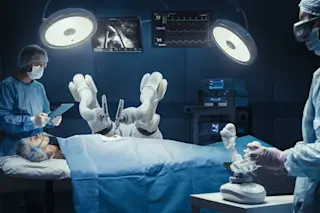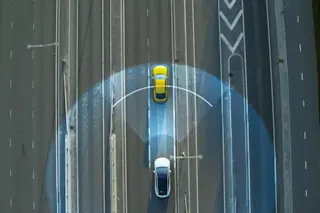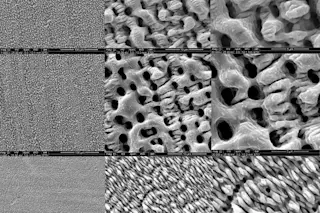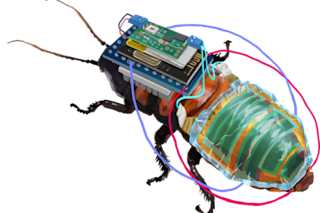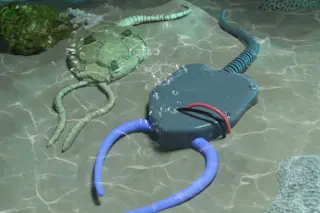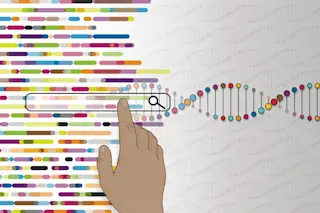Have you ever wondered why woodpeckers don't pass out after scrounging a meal from a tree? Their little brains, after all, undergo decelerations of 1200g as they bang their beaks against the wood--over ten times the force needed to give a human a concussion. Now scientists are learning how to harness the woodpecker's special abilities not to prevent headaches, but to safeguard our gadgets. Researchers at the University of California, Berkeley, analyzed CT scans and video footage of the golden-fronted woodpecker (Melanerpes aurifons) to design better shock absorbers. They found that woodpeckers have four traits that ease their noggins: fluid between the skull and brain, a beak that is slightly elastic, a section of soft skull bone, and a bone called the hyoid, or lingual bone, which is also somewhat elastic. The scientists then constructed a woodpecker-inspired shock-absorbing system around a circuit using materials that approximated the bird's four absorbers. ...
To Build Better Shock Absorbers, Study the Woodpecker's Bash-Proof Brain
Discover how a woodpecker-inspired shock-absorbing system can protect gadgets from mechanical shock. Explore its innovative design!
More on Discover
Stay Curious
SubscribeTo The Magazine
Save up to 40% off the cover price when you subscribe to Discover magazine.
Subscribe

